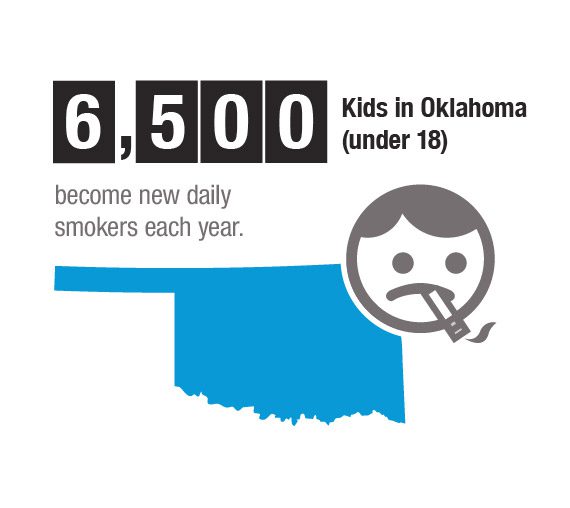Strengthening Enforcement Against Underage Tobacco Sales
Less accessibility. More accountability.
With stronger policies and enforcement, we can protect our most vulnerable youth from tobacco — and safeguard their health, their lives and their futures.
A 2009 study found that for each 1% increase in merchant compliance, there was a 2% decrease in kids’ risk of becoming daily smokers.
Enforcement of youth access policies works. How will you take action?
Want to show your support for stronger tobacco control policies?
Want to continue the conversation?
In the early 90s, in an effort to protect youth from the dangers of tobacco, the Synar Amendment was established. This amendment requires all states to enact and enforce laws prohibiting the sale or distribution of tobacco products to minors. In order to receive full federal funding for substance abuse and treatment grants, states must abide by the amendment — and ensure at least 80% of stores selling tobacco legally obtain a noncompliance rate of no more than 20%.
During compliance checks in 2018, 83 stores were cited for violating laws to prevent kids from illegally buying tobacco – but no licenses were suspended. In fact, the average fine was just $100.
In other words, kids are illegally buying tobacco, and no one is paying a price.
Youth access to tobacco goes beyond retailers. Vape products are promoted, glamorized and sold all over social media, and kids successfully buy them online 94% of the time. Combine that with over-the-counter sales to underage kids, and it could be a recipe for disaster.
Stronger policies — and enforcement — are critical to reducing youth tobacco use.
What Can Be Done?
A variety of policies and programs can be implemented to reduce youth access to tobacco through retail sources:
- Restricting tobacco vending machines.
- Adding signage to remind staff to check purchasers’ proof of age.
- Mandating and expanding the use of statewide merchant education.
- Conducting random, unannounced retailer compliance checks.
- Enforcing stronger penalties for selling to underage people.
Why Act Now?
Youth smokers are more likely to develop severe nicotine addiction compared to adults, which leads to continued tobacco use as they grow older. In fact, 4 out of 5 youth smokers become adult smokers.

READY TO MAKE A DIFFERENCE?
Sign up for the Tobacco Stops With Me newsletter and show your support for a tobacco-free Oklahoma.







